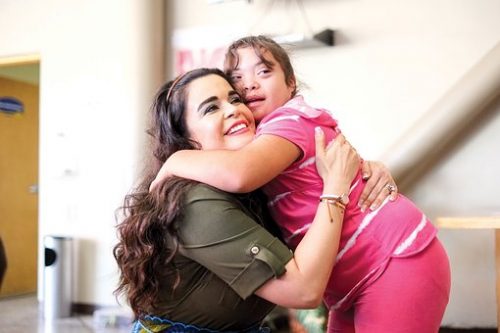
Parents require a certain amount of patience and endurance when providing additional attention and care of their special needs kids on top of struggling to keep their marriage and life together.
“To begin, there is no strict or clear definition of what it means for a child to have “special needs.” Many people think of special needs as necessarily involving a serious or chronic medical condition, wrote Seth Meyers, PsyD.
Couples therapists are well-aware that finding the right amount of balance is demanding. Married couples must find a way to meet in the middle primarily if that would entail settling things in a way that obligations within the house won’t affect their relationship and their responsibilities with their special needs children.
Not every day is a great day; certainly, there will be days when stress will just eat you whole. But, if couples surpass these challenges, they will become more mature and skillful in handling their situation without compromising mutual respect and equilibrium.
So, how do couples go about sustaining their marriage while being responsible parents to their special needs child? Here are some significant inputs from therapists that couples can consider.

You Are Equal
In handling a family, couples should see each other eye-to-eye; nobody should be above the other for it would only lead to disputes. Remember that as parents, you are a team who are mainly tasked to get through with life, warding off difficulties and solving problems. Though there will be times that you will find yourselves at the losing end, it’s entirely normal.
“For couples counseling to work, a couple must want to move forward together. They should have a shared vision of what their relationship could be,” wrote Rose Reif, LPCA, CRC, BC-TMH. Learn to work together in taking care of your special needs child. As equals, couples should communicate with each other about their main responsibilities inside the house and what their contributions are to the family.
Reduce Blaming, Practice Forgiving
Everybody makes mistakes. Even those who have perfected their crafts still encounter missteps. Therefore, if issues arise regarding special needs care or anything concerning the relationship, talk with each other about the issue as calmly as possible.
Catherine Aponte, PsyD, suggested, “I offer collaborative negotiation as the process by which issues are identified, discussed, and resolved in such a way that each partner feels honored and valued—supporting the coupleship for the long haul.” Allow your partner to vent and acknowledge their frustrations for they are valid. Despite the errors made, learn to forgive because it is the only way that couples recover from disharmony. Cease the blaming and try to not habitually re-open sensitive subjects that have been agreed upon in the first place.
If you have I-told-you-so comments brewing inside your head, just keep it to yourself. Blaming is destructive and makes couples lose respect for each other. Furthermore, as one practices the act of forgiveness, the other must also be accepting of mistakes made.
Accept Differences
A person will only reveal his or her true nature once you start living together; this is particularly true for married couples. There will be instances that you will be breathing down each other’s necks not because you hate each other but because your views and principles on doing things inside the house and taking care of your kids don’t coincide; especially regarding discipline, treatment options, school curriculum, and finances. Relax. There will be days like that. Consider those kinds of days as periods of adjustment and learning – you will know how to respect each other’s principles, thoughts, and opinions while being able to learn more about each other
Usually, the best way to deal with differences is to weigh who gave the better option and accept defeat. You also have to remember that there will be days that your partner will provide better options so you should give way. In the end, everyone benefits, especially your special needs child because more options open up better opportunities for childcare.
Rekindle The Romance
Just because you’re swamped with responsibilities and obligations in and out of the family, doesn’t mean that you cannot be intimate and romantic, just like the way it used to be when you’re still on the process of dating. Rekindle heartwarming moments by doing sweet things no matter how simple they would appear.
Do bed and breakfast, add loving and thoughtful notes on personal items, and bring favorite things for no reason at all. To make someone smile is one of the greatest feelings in life, it makes you remember what made you fall deeply with each other and quickly wipes away the stressors and troubles of the day.

Make Time For Each Other
Spending time together after a challenging day or week be complicated, but it’s vital in reconnecting with each other. Have a moment for yourselves as a couple. Go on a quick getaway. Take advantage of your support systems like relatives and grandparents. Remember that keeping your relationship healthy is as important as taking care of your special needs children for, without harmony between individuals, it would be more challenging to provide care.
At first, your relationship will be very rocky, and you both will stumble a couple of times. But that’s not a sign that you should give up easily. That’s how marriages work. Therefore, it is essential that you appreciate the efforts made, respect varying perspectives, and embrace differences. Only then will you understand your partner and be in unity when taking care of your special needs child.











